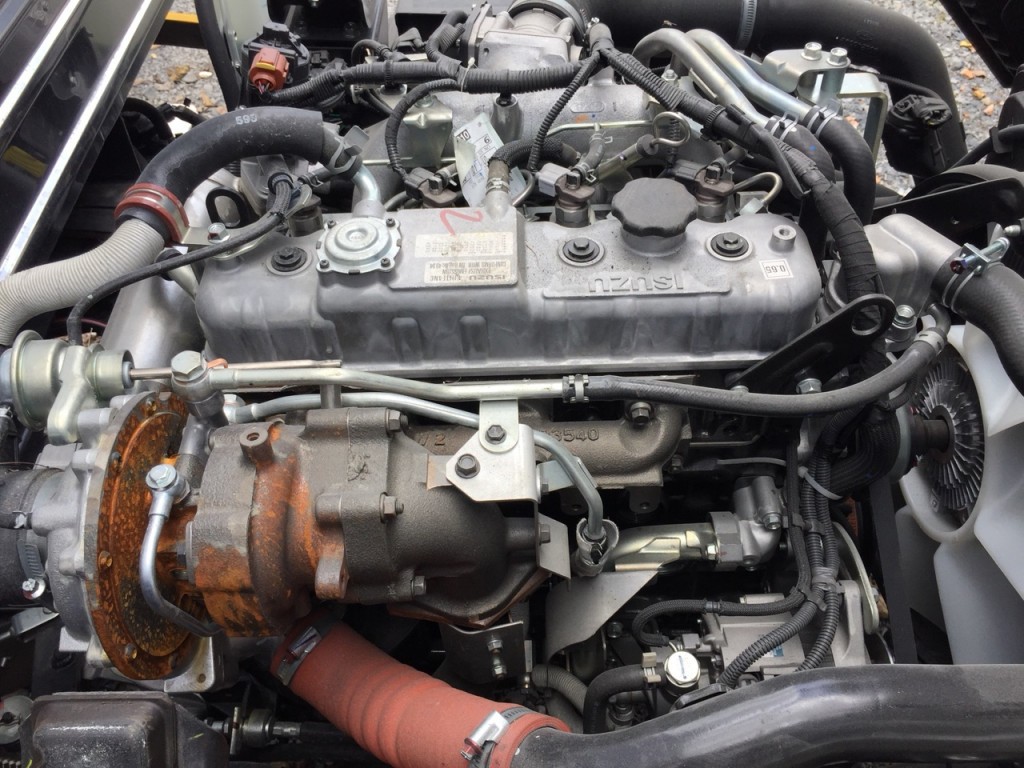Fuel costs are always a top concern for transportation businesses. In fact, they account for a significant portion, from 40% to 60%, of transportation costs and directly impact freight rates. Understanding truck fuel consumption rates not only helps drivers proactively calculate the maximum distance they can travel with the current fuel but also provides a basis for businesses to build effective cost plans and optimize profits.
 Diagram illustrating truck fuel consumption rate
Diagram illustrating truck fuel consumption rate
1. Accurate Formula for Calculating Truck Fuel Consumption
To determine the fuel consumption of a truck, the most common and easy-to-apply formula is:
Fuel Consumption Rate (liters/100km) = (Fuel Used (liters) / Distance Traveled (km)) x 100
This formula allows drivers and businesses to easily calculate and track the actual fuel consumption of their vehicles. From there, they can compare fuel efficiency between different types of trucks, different routes, or even between drivers to find the optimal solution.
2. Reference Fuel Consumption Table for Popular Truck Types Today
Below is a reference table of fuel consumption rates for trucks for popular truck models in the Vietnamese market. Please note that these are just estimates, and actual consumption may vary depending on many factors discussed in the following section.
a) Light Trucks (1 ton – 2.5 tons):
- 1-ton trucks (Teraco 100, Dongben, Thaco Towner): 7 – 9 liters/100km
- 1.5-ton – 2-ton trucks (Thaco K200, Hyundai H150, Isuzu 1.4 tons): 8 – 10 liters/100km
- 2-ton – 2.5-ton trucks (Isuzu 1.9 tons, Kia K200, Kia K250, Hyundai N250SL, Do Thanh Iz49, Do Thanh Iz65): 10 – 12 liters/100km
b) Medium Trucks (3.5 tons – 8 tons):
- 3.5-ton trucks (Hyundai Mighty 75S, Hyundai 110S, Do Thanh Iz65 3.5 tons, Isuzu 3.5 tons, Hino 3.5 tons, Fuso 3.5 tons, Ollin 3.5 tons, Jac 3.5 tons): 12 – 14 liters/100km
- 7-ton – 8-ton trucks (Hyundai 110S, Hyundai EX8, Mighty 8 tons, Isuzu 8 tons): 14 – 16 liters/100km
c) Heavy Trucks and Tractor Trucks (9 tons – 15 tons):
- 9-ton – 10-ton trucks (Daewoo 9 tons, Isuzu 9 tons, Hyundai 9 tons – 10 tons, Hino 9 – 10 tons): 20 – 25 liters/100km
- 15-ton trucks, tractor trucks (Daewoo 15 tons 3-axle, Hyundai HD240 15 tons 3-axle, Hyundai HD320 15 tons 4-axle, 15-ton dump trucks, Hyundai HD1000 tractor trucks, Daewoo tractor trucks): 30 – 35 liters/100km
 Fuel consumption rates for various types of trucks
Fuel consumption rates for various types of trucks
Important Note: Truck fuel consumption rates can vary significantly between vehicles of the same type, even with the same payload. This difference comes from many objective and subjective factors.
3. Key Factors Affecting Truck Fuel Consumption
a) Operating Conditions:
- Terrain: Hilly, winding, and steep roads will increase fuel consumption compared to flat highways.
- Traffic Density: Vehicles moving in crowded cities, frequently stopping and starting, and experiencing traffic jams will consume more fuel than those on open roads.
- Weather: Extreme hot or cold temperatures, rain, and wind can also affect engine performance and fuel consumption.
- Load Weight: The heavier the load and the more people in the vehicle, the higher the fuel consumption.
 Factors influencing fuel consumption in trucks
Factors influencing fuel consumption in trucks
b) Engine and Vehicle Technology:
- Engine Type: Engines with larger displacements typically consume more fuel. However, new-generation engines with advanced technologies (such as direct fuel injection, turbocharging) can be more fuel-efficient than older engines.
- Vehicle Brand and Manufacturing Technology: Each vehicle manufacturer has its own secrets in engine design and manufacturing, transmission systems, which affect fuel efficiency.
c) Driver’s Driving Habits:
- Driving Style: Driving too fast, sudden braking, sudden acceleration, and not maintaining a stable engine RPM all increase fuel consumption. Careless and unprofessional driving also significantly increases fuel consumption.
- Driving Skills: Experienced drivers who drive “smoothly” and anticipate situations well will save more fuel.
 Close-up of a truck engine
Close-up of a truck engine
d) Fuel Quality:
- Fuel Type: Using the correct type of fuel recommended by the manufacturer is crucial. Poor quality fuel can reduce engine performance and increase fuel consumption, and even damage the vehicle in the long run.
- Fuel Source: Buy fuel from reputable sources to ensure quality and avoid counterfeit or low-quality fuel.
e) Regular Vehicle Maintenance:
- Tires: Underinflated tires increase rolling resistance, causing the vehicle to consume more fuel.
- Air Filter, Oil Filter: Dirty air and oil filters reduce engine performance and increase fuel consumption.
- Overall Maintenance: Regular vehicle maintenance helps the engine run smoothly, optimizes performance, and saves fuel.
 Strategies to reduce truck fuel consumption
Strategies to reduce truck fuel consumption
Conclusion
Understanding truck fuel consumption rates and the factors that affect them is crucial knowledge that helps transportation businesses and drivers proactively manage fuel costs, optimize operational efficiency, and increase profits. Regularly monitoring and analyzing fuel consumption rates, combined with implementing fuel-saving measures, will significantly contribute to the sustainable development of businesses in the context of increasingly volatile fuel prices.
For more detailed advice on fuel-efficient Hyundai truck models and to receive the best price quotes, please contact:
My Dinh Hyundai Truck Dealer
- Address: [Your Dealer Address]
- Hotline: [Your Hotline Number]
- Website: dailyxetaihyundai.vn
